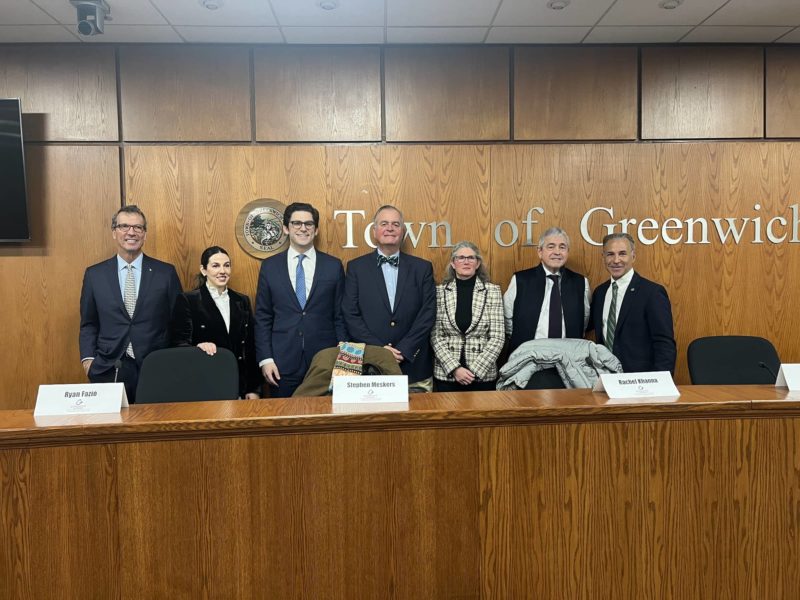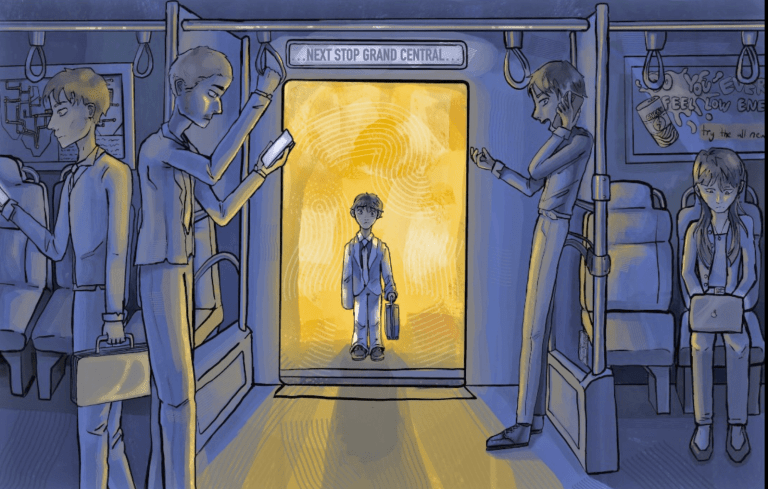
Julia Barcello
Last Thursday morning, Greenwich United Way hosted its Annual Legislative Breakfast where Connecticut state and local legislators discussed current issues and future plans for the town with Greenwich residents. The discussion, led by Demetra Ganias, town resident and founder of Ganias Media Lab, covered a range of topics from affordable housing projects to youth mental health.
Legislators participating in the discussion included Fred Camillo, Hector Arzeno, Rachel Khanna, Stephen Meskers, and Ryan Fazio.
Beginning the discussion, legislators shared their views on the high cost of living in Greenwich and across the state. The average cost of living for a family of four in Greenwich is $81,792 with the cost of living beginning to outpace wages, according to the Greenwich United Way’s Asset Limited Income Constrained Employed (ALICE) report.
Fazio focused on reforming taxes and electricity bills across the state to ease residents’ financial burdens, stating, “I think we could reduce the income tax burden by $1,000 or $2,000 on middle-class families by doing that type of tax reform… I put forth a plan, a six- or seven-point plan, to reduce the average person’s energy, and electricity bills by $200 or $300…. I think we could reduce healthcare costs by 6%.”
Khanna and Meskers both explained the importance of addressing the issue through affordable housing, considering it a nationwide concern. Meskers further stated, “You saw some of that in programs, the Inflation Reduction Act and the Infrastructure Acts have come out of Washington to try to reinvigorate the economy.” He explained the root of the issue is the economy, “I think working on affordable housing… and underpinning it all is economic growth.”
Camillo highlighted the financial strain on middle-class families working multiple jobs, stating, “When we talk about the financial strain of working families, we have to remember that it’s not just those that are on the lower income levels. It’s middle-class people that work two and three jobs here that often don’t complain and don’t say anything.”
In a one-on-one interview, Camillo elaborated on his plans to grow affordable housing while preserving our town’s authenticity, “Keep fighting for local control… showing the state how we’re doing it and how we’re improving the housing stock, the quality of housing and just showing that we do it better in a Greenwich way, in a local way.”
From the state level, Fazio echoed Camillo, stating, “Our housing and zoning policy should be determined locally… It requires that we reform the state laws… to ensure we have local control.”
Meskers reiterated that this is a national issue but expressed a desire for community input on these projects, “Affordable housing is a national problem… I’ve heard from people who are concerned about their neighborhoods. Now in terms of development, I’m not an advocate for high rises… So, I’m not ‘Sky Scraper Steve’ in any manner, shape or form. I do believe in affordable housing… I’d like to see our community reach a consensus on that.”
Khanna focused on addressing affordable living through the education system, “One direct thing we can do is to look at school meals. We can spend all we want on buses, textbooks, computers, and other enhancements, but they’re worth nothing when kids are hungry.” Khanna is working to fund healthy school breakfasts for all and providing eligible students with reduced-price meals.
Expanding this conversation, legislators discussed childcare across the state, including initiatives such as the Connecticut Child Tax Credit, to leverage federal funds, expand healthy no-cost school meals, and invest in Connecticut. The legislation agreed that they would support the Connecticut Child Tax Credit depending on the details of the proposal.
Meskers explained this tax credit to only be part of the solution, “I would prefer to see the resources for families in poverty for early childhood education… Starting from daycare to early childhood education.”
This expanded to the discussion of the future of healthcare and mental health across the younger generations. According to Mental Health America in 2023, “16.39% of youth (ages 12-17) reported suffering from at least one major depressive episode [MDE].” Connecticut ranked 15 out of the 51 states with 15.64% of youth suffering from MDEs.
As a mother, Khanna explained, “I think we need to keep finding ways to keep students engaged in school and ensuring they’re getting the support that they need… Keep recruiting teachers and becoming creative about apprenticeship and vocational programs to employ young people.”
Fazio illustrated his plan to minimize the mental health crisis by implementing a no-smart phone rule for middle school classrooms. In an interview, he further explained, “11-year-old kids are able to sit on TikTok or Instagram during the day. They’re growing minds. They should be focused on academics; they should be focused on meeting friends and developing relationships. I think there are people in the Greenwich Board of Education who are willing to explore it.”
Arzeno said, “My wife is a psychologist, and so she’s in the frontline and serving youth, adolescent families with mental health issues. And I see how much the needs for the services are in the town… Get as much as we can do and funding for our nonprofits, for mental health.”




